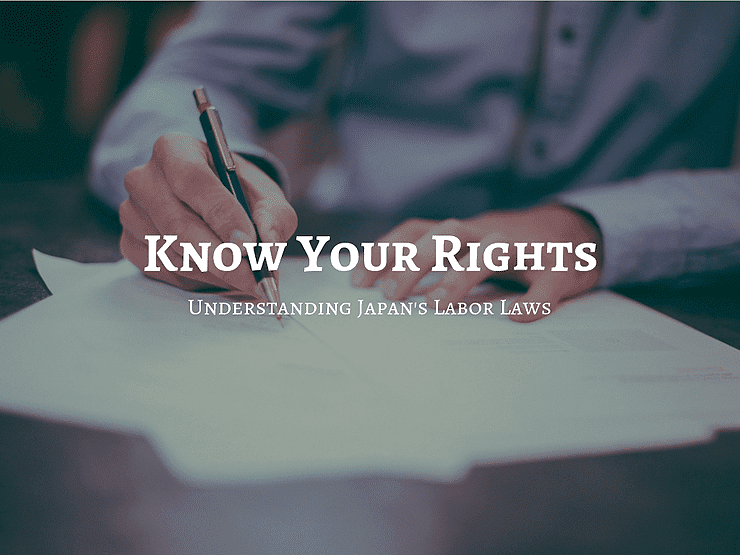Labor Laws in Japan
Full-Time Employee (Seishaiin – 正社員)
This is what you may want if you are working in Japan, because it offers you job security, provides visa support, the ability to get a bank account and rent a place, etc.
Contractor (Keiyaku Shaiin – 契約社員)
You have a little bit more job security under this classification, however, the employer can decide not to renew your contract (usually employment is a 1-year term) without triggering negative repercussions.
Part-Time Employee (Arubaito – アルバイト)
This class of employee unfortunately doesn’t have much job security except possibly for breach-of-contract (if you’re lucky enough to have one). Employers can still get into trouble for wrongful termination and not playing by the rules, but for the part-timer, it usually isn’t worth the uphill battle if a fight ensues.
Common Pitfalls for Foreign workers
In addition to the types of employment in Japan, here are a few other things you should know to ensure that you aren’t being taken advantage of as a foreign employee:
Vacation Days
At a bare minimum, companies generally allocate 10 paid vacation days from the first year of employment. You are entitled to these as soon as you clear 6-months at the company and in theory, can take these whenever you wish (with advanced notice and authorization from your direct supervisor or HR.) To incentivize employees to stay at companies long-term, an additional paid vacation day is granted for every year served: 10 days for the first year, 11 days for the second, 12 for the third, and so on.
Part-timers are subject to different rules regarding the calculation of paid vacation. Please refer to this post (Japanese only) for specifics on the calculation for part-time workers.
Probation Period
By law, this can only be for a period of 3-months. While this can be renewed for another 3-months, you must be notified of this extension prior to the end of the initial 3-month term. Companies do, however, frequently give employees a 6-month probation period right off the bat: that’s not right.
Understanding your rights can be the difference between being manipulated or getting what you are entitled to. Any point of contention with your employer can be an opportunity for negotiation, but also a source of friction (which almost always paints you, the employee, as the “bad person”): know the rules and use them to your advantage.
(The complete blog post can be found here.)
 ©Yokomizo Hirotaka
©Yokomizo Hirotaka
Timothy Langley has 40 years of experience in Japan and Business. A fully bilingual professional focused on Public Affairs, Policy, and Legal Strategy Issues you can learn more from his Website (www.langleyesquire.com) and connect with him on LinkedIn here. (https://www.linkedin.com/in/
All photos ©Yokomizo Hirotaka

